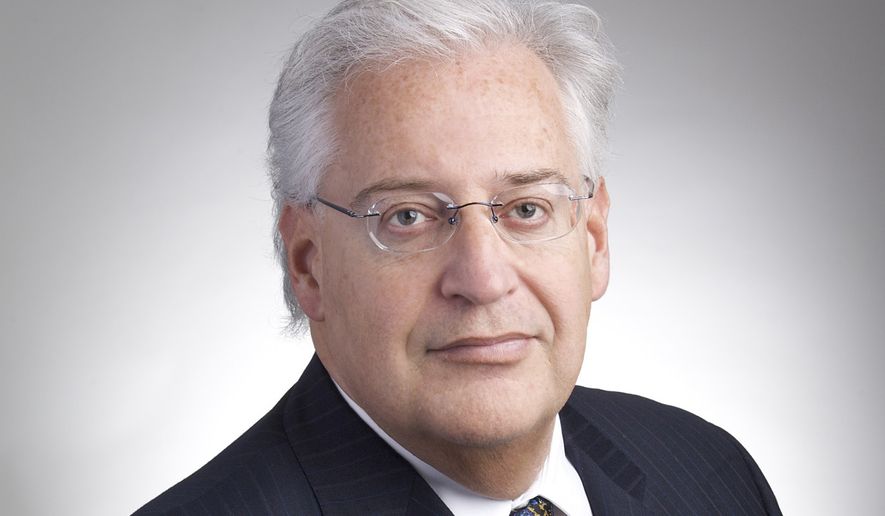President-Elect Donald Trump promised to shake things up, and his appointment of David Friedman as U.S. Ambassador to Israel has certainly stirred up the media and the chattering class.
As incoming president, Trump will inherit the detritus of failed American Middle East policy in general and the spectacular failure of its Israeli-Palestinian policy in particular.
President Obama tried to get it right, but got it all wrong back in 2009, at the beginning of his first term, in his famous Cairo speech. Intended as outreach to the Muslim world, the speech was entitled. “A New Beginning.” It prioritized resolving the conflict between Israelis and Palestinians, and outlined conditions for the resolution.
Despite having the most pro-Palestinian U.S. president in history and despite countless personal visits by U.S. diplomats for nearly 8 years, the Palestinians refused to negotiate.
Elsewhere in the Middle East, Obama’s “new beginning” has come to a tragic ending. The Middle East is a case study of policy failure, measured in hundreds of thousands of civilians killed, ancient communities demolished, cities reduced to rubble, and more displaced people than there were at the end of World War II.
The appointment of David Friedman as ambassador to Israel represents Trump’s completely different Middle East policy. Friedman is unashamedly pro-Israel, and has already expressed his intention not to impose U.S. will on the Palestinian- Israeli relationship.
In an interview with The Media Line, an online Middle East news site, Friedman was asked whether presidential candidate Donald Trump’s position favored a two-state solution to the Israeli-Palestinian conflict. Mr. Friedman replied:
“His position is that he’s observed the obvious, which is that a two-state solution over the past generation has been attempted over and over again and has been a failure. The definition of insanity is to do the same thing over and over again expecting a different result — and he’s not insane. To blindly embrace a two-state solution because it’s been an American policy for the past 25-years is not something he’s going to do, any more so than one would have expected a president in the 1970s embrace the Vietnam war because it was a 20-year policy of the United States. Policies are only good if they work.”
Now is the time for a wise Palestinian leader to step up and use these last weeks of the Obama administration to begin negotiations and compromise with Israel to create a Palestinian state. But sadly, there is no wise Palestinian leader. Palestinian leadership is paralyzed by their history of responding to opportunities in only two ways: saying no, and threatening violence.
Palestinians are paralyzed as well by the deep-seated corruption that undermines every hope to build a state.
According to the Economist magazine, 80% of Palestinians polled believe their leaders are corrupt, and more than half want to dissolve the authority altogether. “A majority believes that it has become a burden,” said Khalil Shikaki, who carried out the poll.
A great deal of money flows into the Palestinian Authority from the coffers of the European Union and the treasury of the United States. Much of it is stolen and wasted, spent on nepotism and graft.
Aman, a Palestinian watchdog group, reports public sector payrolls with “ghost employees” whose salaries go to government ministers. There are even ghost businesses. One $6m joint Palestinian-Italian venture to build a pipe factory existed only on paper. Where did that money go? No one knows.
Periodically, Western donors threaten to withhold aid. In October, the British government’s Department for International Development actually did withhold part of its aid to the PA over concerns it was being used to fund salaries of convicted Palestinian terrorists.
The situation is no better under Hamas in Gaza. Its destitute population has been left homeless for years while the funds designated for housing, along with deliveries of concrete and steel and other building supplies are siphoned off to the military to manufacture rockets and build underground tunnels. Despite high levels of poverty and unemployment, residents of Gaza are heavily taxed. In this corrupt government, onerous taxes are waived for Hamas members and those close to them.
Corruption and terrorism are intertwined under Hamas. The right payment to the right people can buy you a note from a senior doctor for urgent medical treatment in the West Bank or even in Israel. Hamas uses those who have these permits to transfer cash or messages to operatives in the territories.
Last week, Hamas celebrated the 29th anniversary of its founding with a large military display. Crowds gathered to see rockets on pickup trucks, and armed militants with their faces covered accompanied by children carrying fake rifles. Some locals thought the message was directed at them, a warning that the Islamist terrorist group would not tolerate dissidents.
“People are tired, they need a life like humans,” said a cosmetics store owner, who sat in front of his business watching the rally, but unwilling to identify himself, fearing retribution. “Who is going to rise up against those?” he said of the militants. “They must make concessions for our lives to revive again.”
With the appointment of Mr. Friedman as U.S. Ambassador to Israel, the incoming Trump administration appears to be signaling that the U.S. will no longer make excuses for or prop up corrupt, rejectionist Palestinian leadership.
The time is now for the Palestinians to seize the day.




Please read our comment policy before commenting.